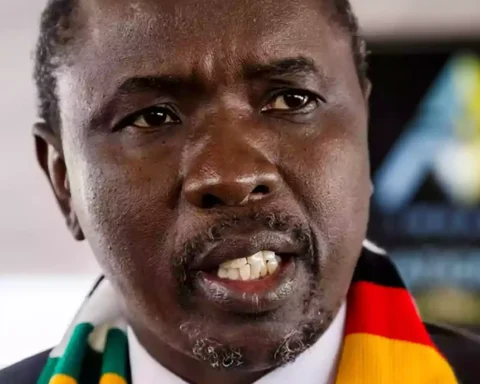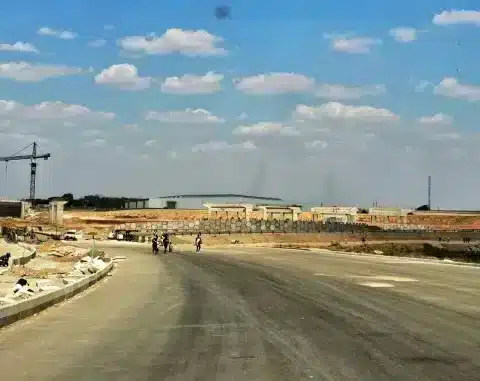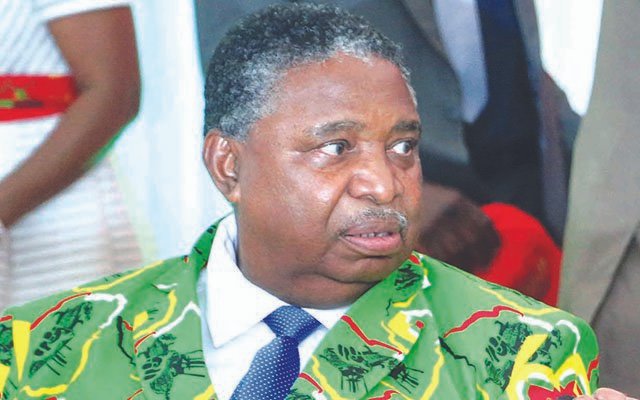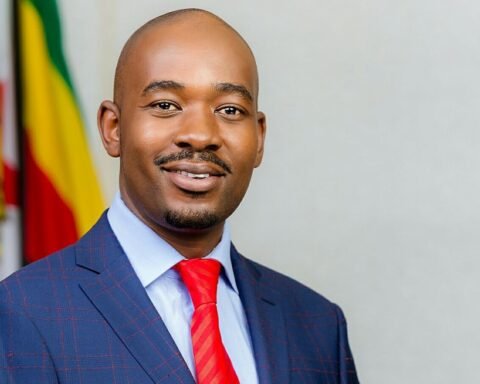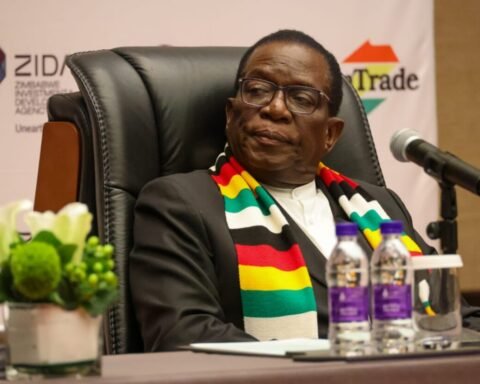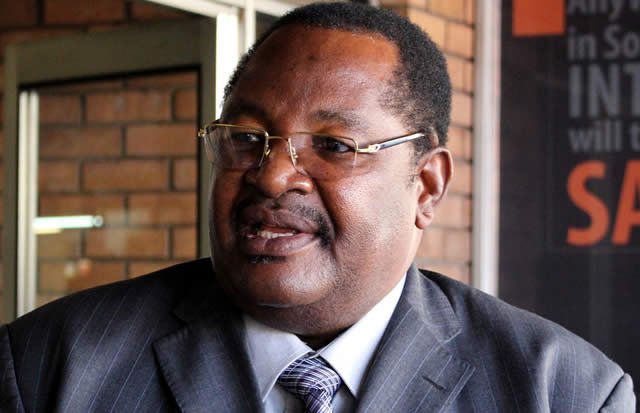I was deeply saddened and disturbed by a video of some elderly villagers savagely beaten by alleged Zanu PF members because they had convened a Citizen’s Coalition for Change meeting in a Zanu PF area.
The video which has gone viral on social networks is a sad but true reminder of the realities on the ground as Zimbabwe enters election season.
Freedom of speech, freedom of expression, and freedom of association are fundamental human rights that are protected by the United Nations (UN) charter. These rights are essential for individuals to be able to fully participate in society and to live their lives with dignity and autonomy.
Freedom of speech is the right to express one’s opinions and ideas without fear of censorship or punishment. This includes the freedom to hold any belief and to speak out about it, as well as the freedom to seek, receive, and impart information and ideas. Freedom of expression also includes the freedom to engage in artistic, literary, and cultural activities.
Freedom of association is the right to join or form organizations, including political parties and trade unions, and to associate with others for any lawful purpose. This right is important because it allows individuals to come together to advocate for their shared beliefs and interests, and to hold their governments accountable.
Unfortunately, these rights are not always respected in practice.
In Zimbabwe, these rights have been frequently violated, particularly the right to freedom of association. There are several reasons why there has been suppression of freedoms such as those of association and freedom of speech and expression in Zimbabwe.
One reason is that the government of Zimbabwe has a long history of suppressing political opposition and restricting the activities of civil society organizations. This has included arrests, detention, and intimidation of political activists and human rights defenders. The government has often justified these actions by claiming that they are necessary to maintain national security or to prevent instability.
Another reason is that there are strong economic and political interests at play that benefit from the suppression of these rights. In Zimbabwe, there is a concentration of wealth and power in the hands of a small elite, and this elite may fear that the exercise of these rights by ordinary citizens could threaten their hold on power.
There are also cultural and social factors that contribute to the suppression of these rights. In some societies, there may be social norms or traditional practices that discourage the exercise of these rights, or there may be a lack of understanding or appreciation of their importance.
It is important to note that the suppression of freedoms such as those of association and freedom of speech and expression is not unique to Zimbabwe, but is a problem that is faced by many countries around the world. It is a complex issue with many different causes, and addressing it requires a multifaceted approach that involves both individual and collective action.
The suppression of freedom of association in Zimbabwe has had a chilling effect on the ability of individuals to organize and advocate for change. It has also made it difficult for civil society organizations to operate and to hold the government accountable for its actions.
It is crucial that governments respect and protect the rights to freedom of speech, freedom of expression, and freedom of association. These rights are essential for the healthy functioning of any democracy, and their violation has serious consequences for individuals and society as a whole. The UN charter and other international human rights instruments provide a framework for the protection of these rights, and it is important that governments uphold their obligations to respect and protect these rights for all individuals.
Indeed, Freedom of speech and freedom of expression are fundamental human rights that are protected by the United Nations (UN) in the International Covenant on Civil and Political Rights and the Universal Declaration of Human Rights. These rights are essential for the development and flourishing of individuals and societies, and they must be afforded to every human being regardless of their race, religion, gender, or any other characteristic.
In Zimbabwe, freedom of speech and freedom of expression are particularly important in the current political and social climate. These rights allow individuals to openly express their thoughts, ideas, and opinions without fear of persecution, and they allow for the exchange of diverse perspectives and viewpoints. This promotes critical thinking and encourages the open and respectful discussion of important issues.
Furthermore, freedom of speech and freedom of expression are necessary for holding those in power accountable. Without these rights, individuals are unable to freely and openly criticize the actions and policies of their government, which can lead to corruption and abuse of power. By affording every person the right to speak out and express themselves freely, we can create a more transparent and accountable society.
Unfortunately, freedom of speech and freedom of expression are not always respected in Zimbabwe. There have been instances of censorship, intimidation, and violence against those who speak out against the government or express dissenting viewpoints. This is unacceptable and goes against the principles of a fair and democratic society.
It is therefore essential that the government of Zimbabwe takes steps to protect and promote freedom of speech and freedom of expression. This could involve enacting laws that guarantee these rights, creating an open and tolerant society, and holding those who violate these rights accountable.
It therefore goes without saying that freedom of speech and freedom of expression are fundamental human rights that must be protected and promoted. These rights allow individuals to express themselves freely and hold those in power accountable, and they are essential for the development and flourishing of individuals and societies. It is therefore vital that the government of Zimbabwe takes action to ensure that these rights are respected and upheld for all citizens.
In addition to the government taking steps to protect and promote freedom of speech and freedom of expression, there are also actions that citizens and civil society organizations can take to ensure that these rights are respected and protected.
One way that citizens can support freedom of speech and freedom of expression is by exercising their own rights to speak out and express themselves freely. This could involve participating in peaceful protests, joining advocacy groups, or simply sharing their thoughts and opinions through social media or other platforms.
Civil society organizations can also play a crucial role in promoting and protecting these rights. This could involve working with the government to enact laws and policies that guarantee freedom of speech and freedom of expression, or providing support and resources to individuals who have been subjected to censorship or intimidation.
Other institutions, such as the media and educational institutions, can also work to support and protect these rights. The media can provide a platform for diverse voices and perspectives, and educational institutions can promote critical thinking and the open exchange of ideas.
In summary, there are many ways that citizens, civil society organizations, and other institutions can work together to ensure that freedom of speech and freedom of expression are respected and protected in Zimbabwe. By exercising these rights and advocating for their protection, we can create a more open and democratic society.
There are several actions that citizens, civil society organizations, and churches can take to help ensure that the rights to freedom of speech, freedom of expression, and freedom of association are respected in Zimbabwe:
1. Educate themselves and others about these rights: It is important for people to understand their rights and to be aware of the ways in which these rights are being violated. This can help to build support for efforts to defend and protect these rights.
2. Get involved in advocacy and campaigning: Citizens, civil society organizations, and churches can work together to raise awareness about the importance of these rights and to advocate for their protection. This can include lobbying the government, participating in protests and demonstrations, and engaging in social media campaigns.
3. Support human rights organizations: There are many organizations in Zimbabwe that work to defend and protect the rights to freedom of speech, freedom of expression, and freedom of association. Supporting these organizations through donations or volunteering can help to amplify their efforts and make a difference in the lives of those who are affected by violations of these rights.
4. Participate in the political process: Voting in elections and participating in other democratic processes can help to ensure that the voices of citizens are heard and that the government is held accountable for its actions.
5. Work to build a culture of respect for human rights: By standing up for the rights of others and promoting a culture of respect for human rights, individuals and groups can help to create a more inclusive and just society. This can involve speaking out against human rights violations, supporting efforts to promote human rights education, and working to build networks of support for those who are marginalized or at risk of human rights abuses.

